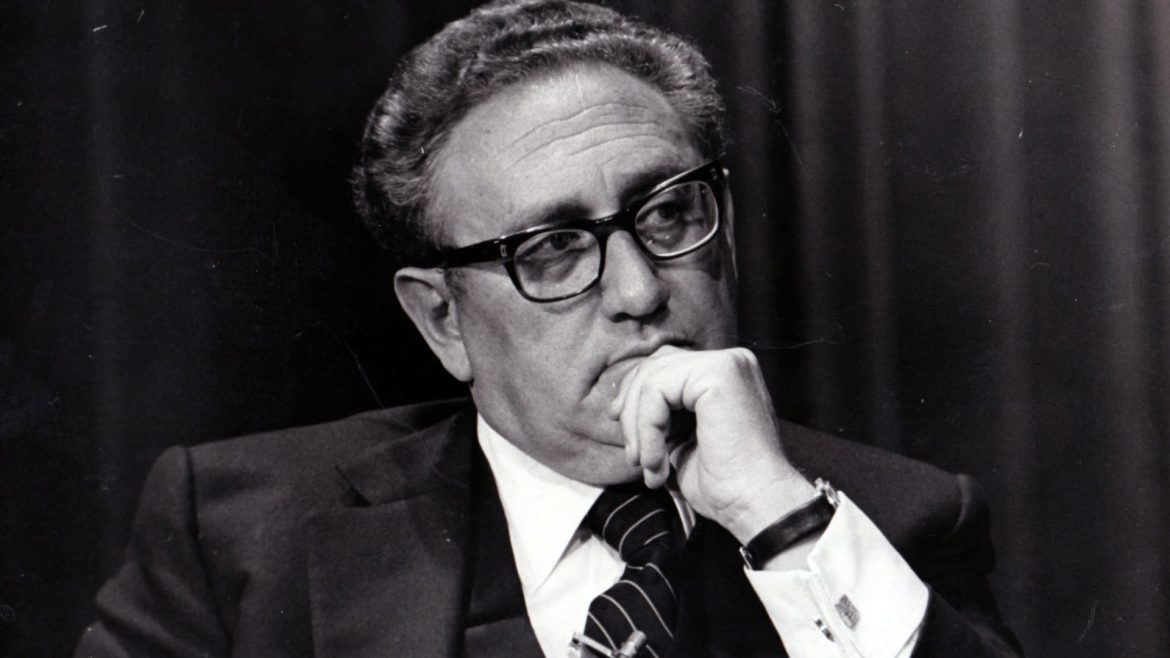Henry Kissinger, the Holocaust survivor and Harvard professor who became a towering U.S. diplomat, master political manipulator and pop culture icon, has passed away at the age of 100. The news of his demise was confirmed on Wednesday by Kissinger Associates at his home in Connecticut. This marks the end of an era for American diplomacy and foreign policy.
Nixon’s Foreign Policy Aide
Henry Kissinger served as President Richard Nixon’s top foreign policy aide, where he played a significant role in setting out the nation’s grand international strategy. His efforts included extricating the United States from an unpopular war and negotiating relations with rival communist powers. Despite the backdrop of the Watergate scandal that eventually led to Nixon’s resignation, Kissinger fiercely defended his position and preserve U.S. credibility as a major power during this period. His efforts led to America’s exit from the Vietnam War and crafting the détente policy that thawed the Cold War with the Soviet Union. Additionally, he played a pivotal role in breaking down the diplomatic great wall surrounding Communist China for 2½ decades.
Idealistic or Pessimistic?
Kissinger’s legacy has sparked contrasting opinions throughout the years. While journalist Seymour M. Hersh’s 1983 book “The Price of Power” bashed him as a double-dealing deceiver, journalist Walter Isaacson’s 1992 biography portrayed him as a complicated pragmatist who mastered the art of nuance. Social critic Christopher Hitchens called him a war criminal, in his 2001 book “The Trial of Henry Kissinger,” while leftist historian Greg Grandin criticized his policies as leading to never-ending wars that affected the U.S. for years. Despite these criticisms, a 2015 book by historian Niall Ferguson portrayed Kissinger as an idealist who followed the vision of Kant, drawing different opinions from various sections of society.
Flight from the Holocaust and Back
Born in 1923 in Germany, Henry Kissinger fled Nazi Germany in 1938, eventually moving to New York. This was only shortly before Kristallnacht, when antisemitic mobs spread terror throughout Germany. Kissinger then served in the Army, returned to Germany to battle Hitler’s regime, and eventually turned to history and academia, winning acceptance at Harvard in 1947 with financing by the GI Bill. After earning his Ph.D. and joining the faculty of the school of government in 1954, he gained wide attention for his book “Nuclear Weapons and Foreign Policy.”
Kissinger served as a board member in Elizabeth Holmes’ Theranos Inc. before the company faced fraud charges. He continued to keep up with geopolitics even late in his life and drew criticism for suggesting that Ukraine should cede some land to Russia to achieve a peace deal and that Russia should be given the opportunity to rejoin the international system in the future. His death marks the passing of an influential figure in American history, with a complicated and divisive legacy. Kissinger will be remembered as a diplomat, strategist, and thinker who continues to elicit mixed emotions and opinions even after his death.
